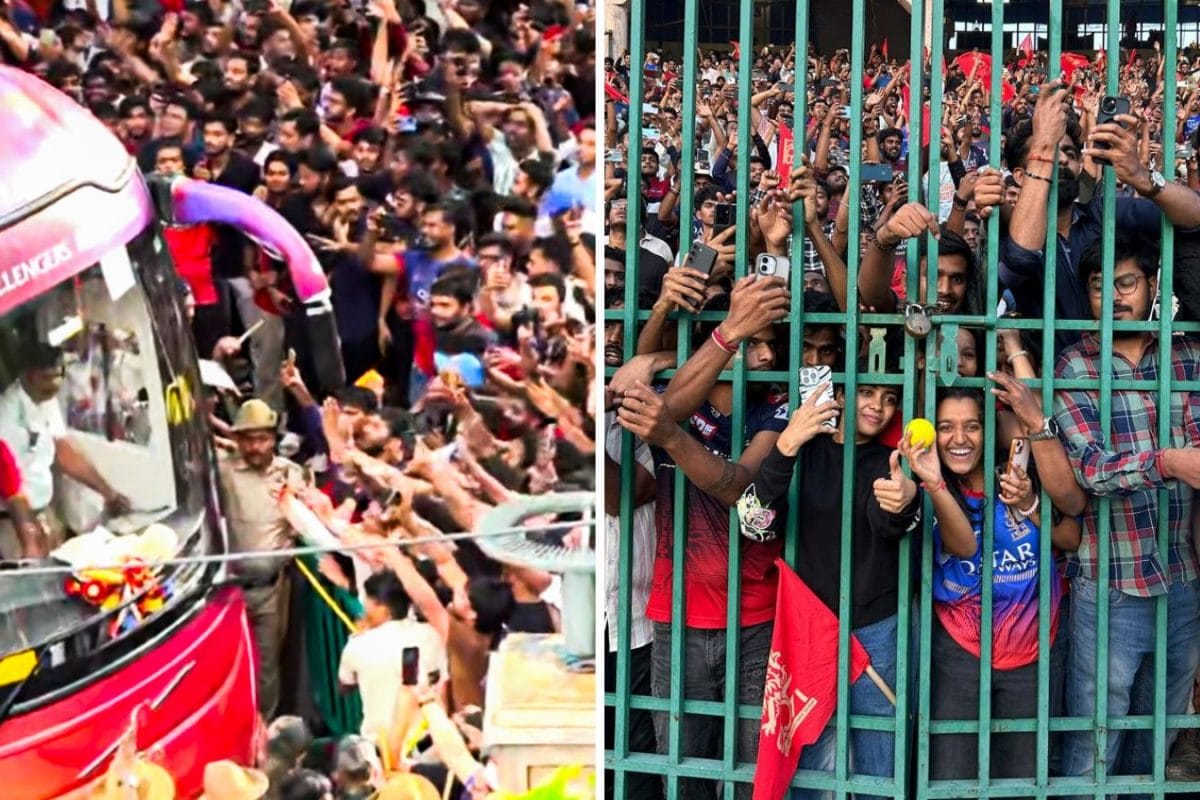

The recent tragic events in Bengaluru and Prayagraj, though vastly different in nature, share a disturbing commonality: the instrumentalization of victims for political gain. In Bengaluru, the euphoria surrounding Royal Challengers Bengaluru's (RCB) maiden IPL victory turned into a nightmare as a stampede near the Chinnaswamy Stadium claimed the lives of 11 fans and injured dozens more on Wednesday, June 4, 2025. Just months earlier, on January 29, 2025, a stampede at the Maha Kumbh in Prayagraj resulted in at least 30 fatalities and numerous injuries as millions of pilgrims gathered for a holy dip. In both instances, the immediate aftermath saw a flurry of activity, not just to provide relief and support to the victims and their families, but also to leverage the tragedies for political mileage.
In Bengaluru, the state government swiftly initiated a series of actions. Bengaluru Police Commissioner B. Dayananda was suspended, along with other officials responsible for the jurisdiction, pending inquiry. Chief Minister Siddaramaiah also announced a judicial inquiry led by a former High Court judge. Simultaneously, an FIR was filed against RCB, the event management company, and the Karnataka State Cricket Association (KSCA), citing culpable homicide and other serious charges. While accountability is undoubtedly necessary, the speed and scale of these actions raise questions about their intent. Critics argue that the government was keen to deflect blame from its own potential missteps, including the last-minute decision to hold a felicitation event that clashed with RCB's victory parade. Union Minister H.D. Kumaraswamy openly accused the Deputy Chief Minister of rushing the event "simply to glorify himself," leading to the loss of lives. This instance reflects a pattern where tragedies become fodder for political accusations and point-scoring, overshadowing the genuine need for introspection and systemic change.
The Maha Kumbh stampede in Prayagraj followed a similar trajectory. Opposition leaders immediately targeted the Uttar Pradesh government, alleging mismanagement and demanding accountability. While Chief Minister Yogi Adityanath ordered a judicial probe and promised action, the opposition Congress party called for the event's management to be handed over to the army. Here too, the focus quickly shifted from the victims to the political fallout, with each party attempting to capitalize on the tragedy to bolster its own position. Even as bodies were still being recovered, political narratives were being crafted, often at the expense of sensitivity and respect for the deceased and their families.
This phenomenon of politicizing tragedy is not new. Public tragedies often trigger a "trauma script," as described by sociologist Kenneth Beamish, where political elites, news media, and social movements use tragic events to provoke moral panic and garner support for their positions. This script often involves identifying "innocent victims" harmed by "unforeseeable, uncontrollable, and unwarranted circumstances," with blame attributed to "society" or specific institutions. The focus on social blame can lead to political polarization, as different groups vie to control the narrative and assign responsibility.
The long-term consequences of this politicization are significant. As seen after the 9/11 attacks, families of victims can become highly politically engaged, often advocating for policy changes to prevent similar tragedies. While this activism can be a powerful force for good, it also risks further entrenching political divisions and instrumentalizing the victims' experiences for specific agendas. The key lies in ensuring that the focus remains on systemic reforms and preventative measures, rather than simply using tragedies as opportunities for political grandstanding.
In both the Bengaluru RCB event and the Maha Kumbh stampede, the rush to assign blame and extract political capital risks trivializing the very real pain and suffering of those affected. It is imperative that authorities prioritize thorough and impartial investigations, focusing on identifying the root causes of these events and implementing measures to prevent future occurrences. Furthermore, it is crucial for political leaders to resist the temptation to exploit these tragedies for short-term gain, and instead, work collaboratively to address the underlying issues and support the victims and their families with empathy and compassion. Only then can we hope to break the cycle of tragedy and political opportunism.